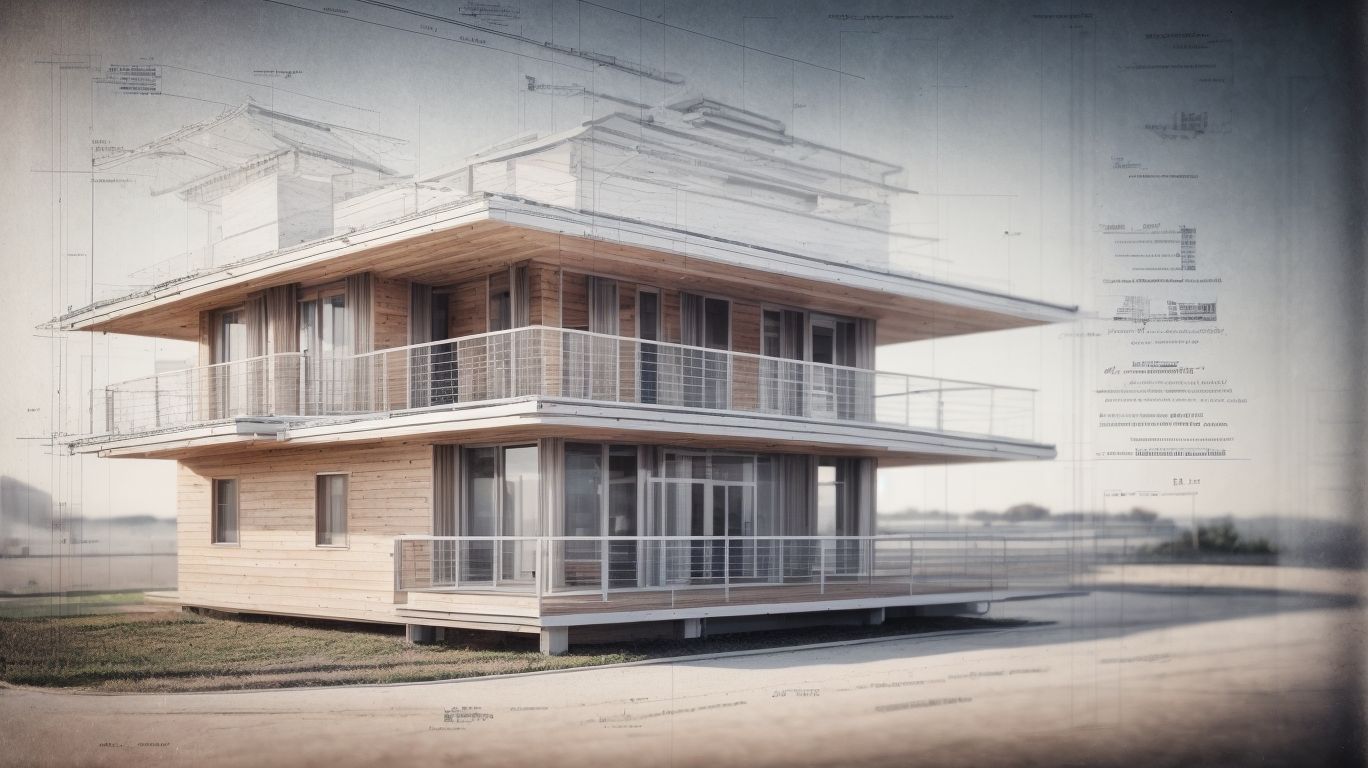
Navigating Legal Aspects of Structural Engineering in Home Remodels
Navigating the legal aspects of structural engineering in home remodels can be a daunting task, but understanding the intricacies of building codes, permits, and the qualifications of a reputable structural engineer is essential for a successful renovation project.
In this comprehensive guide, we will delve into the fundamental elements of structural engineering and its significance in home remodels. From decoding building codes and permits to exploring common legal issues and the importance of hiring a qualified structural engineer, this article will equip you with the knowledge needed to navigate the legal landscape of home remodeling.
Whether you’re a homeowner embarking on a renovation or a contractor seeking to ensure compliance, the insights shared here will be indispensable in your remodeling journey.
What is Structural Engineering?
Structural engineering involves the analysis, design, and planning of structures to ensure their safety, durability, and compliance with building codes and regulations, making it essential for successful home remodels.
It plays a crucial role in assessing the existing structure of a home and determining the feasibility of remodeling projects. Structural engineers use advanced techniques such as structural analysis to evaluate the impact of modifications, ensuring that the changes do not compromise the building’s integrity. Their expertise enables homeowners to undertake renovation projects with confidence, knowing that the structural elements of their homes are being carefully considered and designed to meet safety standards and regulatory requirements.
Why is it Important in Home Remodels?
The importance of structural engineering in home remodels cannot be overstated, as it ensures the application of safety standards, compliance with property laws, and the preservation of structural integrity throughout the renovation process.
In the context of home renovation, structural engineering plays a critical role in ensuring that any building modifications meet the necessary safety and structural standards. This is particularly crucial for property owners, as adhering to these regulations not only safeguards the well-being of the occupants but also upholds the structural integrity of the property.
With the expertise of structural engineers, it becomes possible to navigate the complexities of home remodels and make informed decisions that align with legal requirements and best practices for construction and renovation projects.
Understanding Building Codes and Permits
Understanding building codes and permits is fundamental to any construction or home remodeling project, as they dictate the regulatory standards, compliance requirements, and necessary permissions for construction activities.
These codes and permits are put in place to ensure that construction projects adhere to safety, structural, and environmental standards set forth by local ordinances. Compliance with these regulations not only guarantees the safety and stability of the structures but also helps prevent potential hazards and liabilities.
Obtaining the required permits also ensures that the construction process is properly documented and monitored, serving as a legal authorization for the development and alterations to properties. Thus, understanding and adhering to building codes and permits is essential to a successful and legally compliant construction project.”
What are Building Codes?
Building codes consist of regulations and standards established to promote safety, structural integrity, and compliance in construction projects, serving as essential benchmarks for ensuring the well-being of occupants and the longevity of structures.
They play a crucial role in upholding safety standards, ensuring that buildings are constructed in accordance with zoning laws and undergo thorough building inspections. These codes are pivotal in minimizing the risks of potential hazards and disasters, contributing to the overall resilience and sustainability of our built environment. By outlining specific requirements for materials, design, and construction methods, building codes facilitate the creation of secure and durable structures, ultimately safeguarding the lives and possessions of those who inhabit them.
Why Do You Need Permits for Home Remodels?
Obtaining permits for home remodels is imperative as it ensures legal compliance, adherence to building modifications, and conformity to construction regulations, thereby safeguarding the interests of homeowners and the structural integrity of the property.
These permits play a critical role in overseeing renovation projects, ensuring that the construction work meets safety standards and zoning requirements. They also serve as a mechanism for governing official approval and documentation, providing a transparent framework for all parties involved.
By requiring permits, property rights are upheld, and construction contracts are upheld, fostering a framework of accountability and protection for both homeowners and the community at large.
What Happens if You Don’t Get Permits?
Failing to obtain permits for home remodels can lead to serious consequences, including building inspections, potential legal disputes, and liabilities arising from non-compliance with construction regulations and zoning laws.
These repercussions can result in hefty fines, delays in project completion, or even the need to tear down and redo work that was not up to code. In addition, homeowners may find themselves embroiled in construction litigation, facing legal battles and financial strain.
Non-compliance with building regulations can lead to safety hazards and compromise the structural integrity of the property, ultimately putting the inhabitants at risk. Therefore, proper project management and adherence to construction regulations are essential to avoid construction disputes and ensure a successful home remodel.
Hiring a Structural Engineer for Your Home Remodel
Engaging a qualified structural engineer for your home remodel is crucial to ensure the implementation of sound structural solutions, compliance with building codes, and the oversight of critical structural modifications.
Their expertise in evaluating the existing structure, collaborating with architects to integrate design with structural elements, and obtaining construction permits ensures that the remodel progresses smoothly.
The engineer plays a key role in reviewing construction contracts to guarantee that the structural aspects are addressed properly, ultimately contributing to a safer and more durable home.”
What Qualifications Should a Structural Engineer Have?
A competent structural engineer should possess relevant qualifications, professional certifications, and comprehensive expertise in structural analysis, ensuring the proficient handling of complex home remodels and construction projects.
Having a strong grasp of building design principles and safety standards is essential, as it enables the structural engineer to collaborate effectively with architects, ensuring that the structural design aligns with the overall architectural vision.
The ability to analyze and assess existing structures for potential renovations or upgrades is a key skill that helps in creating innovative and practical solutions for complex remodeling projects.
How to Find a Reputable Structural Engineer?
Finding a reputable structural engineer involves thorough research, verification of credentials, and a comprehensive assessment of their previous projects and collaborations to ensure their suitability for overseeing home remodels and construction contracts.
It is crucial to scrutinize their credentials, including licenses, professional affiliations, and certifications. Examining their experience in handling different types of projects, from residential to commercial, can provide valuable insights into their capabilities.
Collaborating with a structural engineer with a history of successful project management can mitigate construction disputes and liability issues, ensuring that the construction process runs smoothly and efficiently.
What to Expect During the Engineering Process?
The engineering process with a structural engineer encompasses detailed assessments, collaborative planning, and innovative building design strategies, ensuring the seamless integration of structural modifications within your home remodels.
These professionals play a crucial role in evaluating the existing structure, identifying areas for improvement, and devising innovative design solutions. By collaborating with architects and contractors, they ensure that the remodeling project complies with construction laws and regulations, guaranteeing the safety and stability of the modified structure.
Their expertise enables homeowners to achieve not only aesthetically pleasing designs but also structurally sound and sustainable improvements to their living spaces.
Common Legal Issues in Home Remodels
Home remodels can present common legal issues such as construction disputes, regulatory non-compliance, and potential liabilities, necessitating a comprehensive understanding of construction law and property rights to navigate potential challenges effectively.
These legal issues can arise due to disagreements between homeowners and contractors regarding project scope, quality of work, or payment disputes. Regulatory non-compliance may lead to fines and project delays, impacting the overall timeline and budget. Understanding liabilities related to property ownership, construction regulations, and residential construction is crucial for safeguarding both parties’ interests and ensuring a successful home remodel project.
What are the Most Common Building Code Violations?
The most common building code violations in home remodels relate to non-compliance with structural modifications, inadequate property setbacks, and violations of construction regulations, underscoring the imperative need for adherence to property laws and local ordinances.
These violations not only pose safety risks but also create potential legal issues for homeowners. Structural modifications, such as altering load-bearing walls without obtaining proper permits, can compromise the integrity of the home. Inadequate property setbacks can lead to disputes with neighbors and legal repercussions. Violating construction regulations can result in fines and the requirement to rectify the non-compliant work.
Therefore, obtaining building permits and ensuring compliance with land use regulations are essential to avoid these common pitfalls in home remodels.
What are the Consequences of Non-Compliance?
Non-compliance with building codes and regulations can lead to severe legal consequences, including construction disputes, regulatory penalties, and potential project delays, necessitating proactive measures to avoid such repercussions.
Failure to adhere to construction permits and zoning laws may result in litigation, fines, and costly delays. Regulatory penalties could include suspension of permits, fines, or stop-work orders, leading to significant setbacks. Disputes arising from non-compliance may lead to expensive legal battles, impacting project timelines and budgets. It is crucial for construction professionals to prioritize compliance with building codes to mitigate these risks and ensure the smooth progress of their projects.
How to Avoid Legal Issues in Home Remodels?
Avoiding legal issues in home remodels requires meticulous adherence to property rights, thorough compliance with construction regulations, and proactive engagement with legal professionals to address any potential disputes or compliance challenges effectively.
By ensuring that all construction work adheres to local building codes and zoning laws, homeowners can mitigate legal risks associated with property ownership and construction compliance.
Carefully drafted construction contracts and clear communication with contractors can help avoid misunderstandings and potential disputes.
Legal professionals can provide valuable guidance on navigating complex regulations and resolving any legal issues that may arise during the remodeling process, ultimately safeguarding homeowners from costly legal entanglements.




No Comments